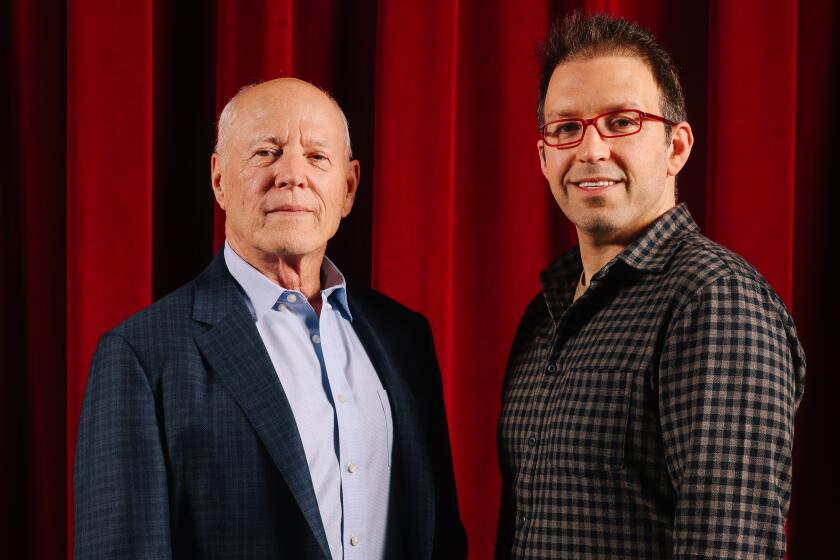Roy Disney, Gold Won’t Put Up Dissident Slate
Two former Walt Disney Co. directors at odds with Chairman Michael Eisner won’t nominate a dissident slate for the company’s annual meeting, they confirmed Friday.
Roy E. Disney and Stanley P. Gold had until today to make nominations or place issues on the agenda. They said through a spokesman that “the timing was insufficient” for a shareholder campaign and would be “inconsistent with our strategy.”
Any move to nominate directors was considered a longshot, given the short time and steep costs that would have been involved in soliciting shareholder votes.
Disney’s annual meeting is usually held in February or March. The date and location are expected to be unveiled next month in the company’s proxy statement. The company declined to comment Friday.
Three weeks ago, Disney and Gold quit the board, calling for Eisner to step down and criticizing other directors for being too passive. They contended that the company’s performance had deteriorated during the last seven years.
Other directors shot back at the two men, calling their actions “a disservice to shareholders” and contending that the company’s management was turning the company around.
Some analysts think Disney’s stock price increase in the last year has given Eisner some breathing room by reducing shareholder dissatisfaction.
The two former directors “need to get some of the institutional investors on their side,” said Paul Hodgson, senior researcher for the Corporate Library, a governance website. “That’s more difficult than a year ago because Disney has had a minor turnaround.” If investors “think Eisner has a few more years in him, they’ll leave him there,” Hodgson said.
Roy Disney is the nephew of company namesake Walt Disney. Gold is Roy Disney’s longtime lieutenant at his Burbank-based investment vehicle Shamrock Holdings.
The two have said they planned to begin talks soon with shareholders to argue their case but haven’t detailed specifics, saying they don’t want to tip their hand to Disney.
Observers believe that the pair, for now, most probably will urge shareholders to protest by voting against approving Eisner and other directors for their board seats.
“A ‘no’ vote is the cheapest form of activism,” said Patrick McGurn, senior vice president and special counsel at Institutional Shareholder Services, a Rockville, Md., proxy advisory service whose clients include some major Disney investors.
Electing directors at a public company’s annual meeting is usually a pro forma, near-unanimous exercise, so the goal in dissident votes usually is to garner enough support to embarrass a company. McGurn said any protest vote exceeding 20% would be considered a sign of significant investor discontent.
“It’s the de facto line of demarcation between successful and unsuccessful ‘no’ vote campaigns,” McGurn said.
In May, Time Warner Inc. shareholders protested by giving only 78% approval to board member Steve Case, an architect of the ill-fated America Online Inc.-Time Warner merger.
Times staff writer Richard Verrier contributed to this report.
More to Read
The biggest entertainment stories
Get our big stories about Hollywood, film, television, music, arts, culture and more right in your inbox as soon as they publish.
You may occasionally receive promotional content from the Los Angeles Times.





